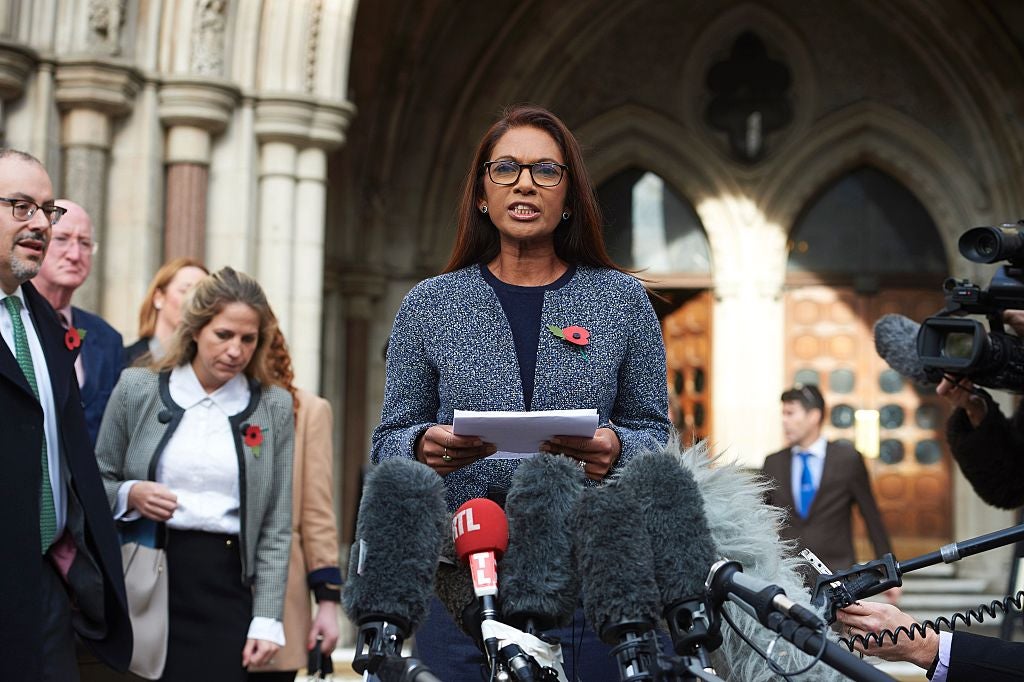Scotland ‘expected’ to join Brexit legal challenge in fight against May triggering Article 50
‘Their case will be different to ours. They will be talking about their own particular interests’

Scotland is likely to join a legal challenge against the Government’s plan to exit the EU without consulting Parliament, according to one of the case’s lead claimants.
Philanthropist and investment manager Gina Miller has led the case arguing that Theresa May cannot take away the rights of UK citizens as members of the EU without an Act of Parliament to change the law.
On Thursday, three High Court judges found in favour of the claimants, ruling that the Prime Minister cannot use executive powers to trigger Article 50 of the Lisbon Treaty, formally beginning the two-year Brexit process.
The Government has said it will appeal the ruling, and the Supreme Court is set to consider the case between 5-8 December.
Asked if Scotland’s devolved government would be joining the claimants in fighting the case, Ms Miller told the BBC’s Andrew Marr Show she believed it would.
“We are expecting a number of governments to join us,” she said. “But their case will be different to ours. They will be talking about their own particular interests.”
At First Minister’s Questions at Holyrood on Thursday, Nicola Sturgeon said ministers would “actively consider” whether or not to become involved in the case.
She said the judges’ decision that MPs must be involved in the decision to trigger Article 50 was “hugely significant”.
Ms Sturgeon said: “The judgment this morning I don’t think is a huge surprise for anyone that followed the case, but it is hugely significant and it underlines the total chaos and confusion at the heart of the UK Government.
“We should remember that their refusal to allow a vote in the House of Commons is not some matter of high constitutional principle – it’s because they don’t have a coherent position and they know that if they take their case to the House of Commons that will be exposed.”
The High Court judges ruled agains the Government strictly based on “the fundamental constitutional principles of the sovereignty of Parliament”, expressly stating that they were not concerned with the “political issue” of whether or not Britain should leave the EU.
In practice, the judgement is almost certainly not going to stop Brexit. But it could delay the triggering of Article 50, as Ms May would have to present Parliament with the Government’s plans for how leaving the bloc will actually work – and either the Lords or Commons could reject her terms.
Matters are confused further by a ruling at the High Court in Belfast less than a week earlier.
Judges there found that neither the devolved assembly of Northern Ireland nor Westminster needed to be involved in triggering Article 50.
It preferred to interpret Article 50’s triggering as simply a procedural step, stating the Parliament need only be involved when the law actually does change, upon leaving the bloc, two years down the line.
The High Court decided differently because it reasoned that, once the process of leaving has begun, the removal of EU rights is inevitable – in other words, that there is no going back on Article 50.
The Supreme Court will have to decide which interpretation of the Lisbon Treaty it prefers – and like Scotland, Northern Ireland may also hope to have a second bite at the cherry.
Join our commenting forum
Join thought-provoking conversations, follow other Independent readers and see their replies
Comments